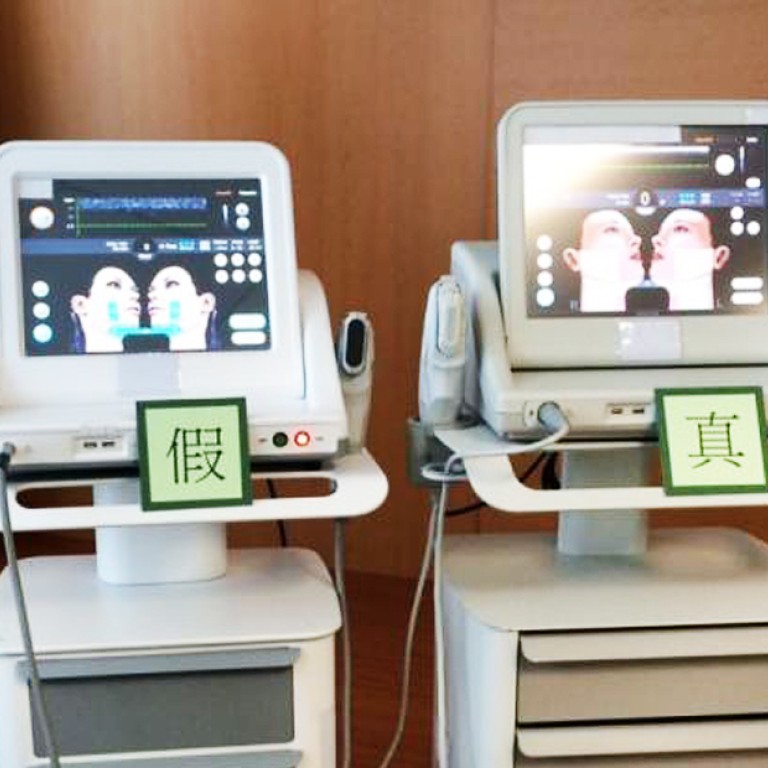
Shop owner and beautician held over allegedly phoney ultrasound machine
A beauty parlour owner and a beautician were arrested by customs for allegedly using a counterfeit ultrasound beauty machine on customers.
Some believe that ultrasound treatments can tighten the skin and stimulate the making of collagen in the body. An ultrasound machine produced by a famous American brand can cost hundreds of thousands of Hong Kong dollars, according to customs.
Its team conducted a test-buy operation on April 29, in which an undercover officer tried the ultrasound facial treatment at a beauty parlour. It was a follow-up to a complaint made to the bureau, which accused the parlour of claiming to offer treatment using the US device but actually employing a "lookalike" machine.
A 30-year-old shop owner and a 25-year-old beautician were arrested in the operation. They are suspected of using false descriptions during the sale of beauty services to a customer, contravening the Trade Descriptions Ordinance.
Both were on bail pending further investigation.
Yeung Wing-yan, customs' divisional commander for investigating unfair trade practices, said a counterfeit machine could cause skin burns or permanent damage.
"The genuine machine comes with a real-time analysis of the skin - derma, fat and muscle - facilitating beauticians' operation of the machine," she said.
Using a counterfeit machine without the ultrasound images would be operating blind, Yeung added, leading to "a significant increase in risks".
Yeung also pointed out that customers should feel disagreeable after receiving treatment from the genuine machine, and that a counterfeit would not produce as strong an effect.
Under the ordinance, a trader commits an offence by using misleading sales tactics. The maximum penalty is a fine of HK$500,000 and imprisonment for five years.
The Consumer Council has noted an increase in complaints about beauty services over the past few years, with 1,140 cases last year.
The watchdog received 305 such complaints in the first three months of this year, an increase of five per cent compared with the same period last year.
Most complaints were about sales practices and service quality, accounting for 122 and 85 cases respectively.
The amended Trade Descriptions Ordinance came into effect in 2013, extending the law's coverage from physical goods to services. The ordinance bans all forms of false descriptions of goods and services. Omitting important charges and adopting aggressive sales tactics are also illegal under the amended law.
